
Resources
Browse our full library of in-depth resources and publications
The PacWastePlus programme team is committed to producing meaningful and valuable publications and resources that provides guidance for improving waste management in the Pacific
Search
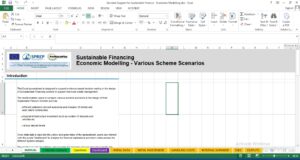
Resource Template
Decision Support for Sustainable Finance – Economic Modelling
This Excel spreadsheet is designed to support evidence-based decision making in the design of a Sustainable Financing scheme to support improved waste management.
The model enables users to compare various scheme scenarios in the design of their Sustainable Finance Scheme such as: different collection network scenarios and inclusion of remote and outer island communities
physical infrastructure investment such as number of deposits and vehicles etc
various deposit levels
Once initial data is input into the yellow tabs of the spreadsheet, users can interact with the purple "Dashboard" to analyse the financial implications and return rates across the different system designs.
The model accounts for inflation, and provides for inclusion of a non-recycling penalty fee.
By evaluating costs, revenues, and material return outcomes, this tool helps stakeholders project scheme performance and determine a financially viable PSS design tailored to their local context.
This model can be used in conjunction with the Calculating Scheme Handing and Administration Fees and Tracking Scheme Performance Model which will help calculate the scheme throughout and further refine scheme costs.
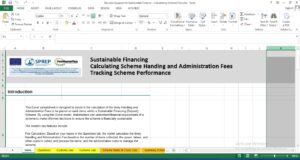
Resource Template
Decision Support for Sustainable Finance – Calculating Scheme Fees
This Excel spreadsheet is designed to assist in the calculation of the likely Handling and Administration Fees to be placed on each items within a Sustainable Financing (Deposit) Scheme. By using this Excel model, stakeholders can understand financial requirements of a scheme to make informed decisions to ensure the scheme is financially sustainable.
The model's key features include:
Fee Calculation: Based on your inputs in the Questions tab, the model calculates the likely Handling and Administration Fee based on the number of items collected, the power, labour, and other costs to collect and process the items, and the administrative costs to manage the scheme.
Labour Calculation: Based on estimated scheme throughput, the model calculates the "man-hours" required to safely collect and process the items
Export Requirements: Based on estimated scheme throughput and size reduction, the model calculates the number of 20ft sea containers that may be required each year to export the items to recycling markets
Performance Tracking: Once your scheme commences, the model provides for you to track collection data and measures scheme performance (against import data). This allows for accurate reporting the identification of areas for improvement.
This model can be used in conjunction with the Economic Modelling spreadsheet which assist users to analyse the financial implications and return rates across the different system designs.
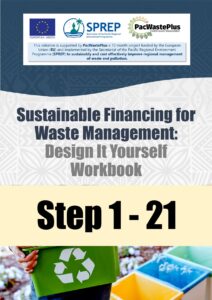
Resource Template
21 Step Advance Recovery Fee and Deposit (ARFD) Workbook
Designing and implementing a successful, evidence-based ARFD is a multifaceted process, requiring the collection of data, undertaking meaningful stakeholder consultation, and acknowledging and incorporating differing views to make decisions to meet the specific local needs. It may feel like a daunting process. The 21-Step Pathway breaks the process down into logical, manageable steps.
This Workbook is designed to assist users through the completion of each of the 21 steps at a self-managed pace. Each step on the 21-Step Pathway is a chapter in the Workbook.
This Workbook can be used by anyone seeking to design an ARFD scheme to be set in legislation or regulation. It will be of value to by any individual or group involved in the design of an ARFD scheme, for example:
• Government representatives investigating the feasibility of an ARFD scheme or who have been tasked with developing a scheme
• A Working Group tasked with developing a scheme, or contributing to one or more steps of the 21-Step Pathway
• Private Sector or NGO representatives seeking to assist with the design of an ARFD scheme, or contributing to one or more steps of the 21-Step Pathway
The broad goals of an ARFD Scheme are to improve rates of recycling through the provision of an incentive for consumers to recycle (by providing an immediate financial reward (the refund of their “deposit”) when they drop eligible items at a depot), changing behaviour away from littering, burning, or disposing to landfill, and a self-sustainable funding source for governments/recyclers to undertake the collection, transport, processing, and export/recycling of recoverable materials (using the “fee” component which is calculated as the true cost of recycling each eligible item), providing an economically viable ability to undertake recycling/transfer activities long term, not reliant on variable government funds.
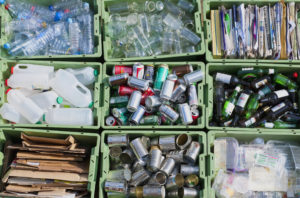
Resource Template
Waste Management Decision Support Tool
The Decision Support Tool is designed to guide decision-makers through a balanced high-level self-assessment of issues that will influence decision making. The DST poses a series of questions on Political, Environmental, Social, Technological, Legal and Economic (PESTLE) factors affecting the initiative in question. Each issue is scored whether the outcomes are positive or negative. The DST summarises responses and provides a graphical representation of the total forces for and against the initiative for each PESTLE category allowing for a quick and intuitive overview of relative benefits and weaknesses of the initiative.
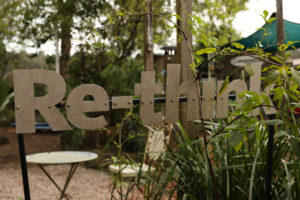
Video Resource
Sustainable Financing for Waste Management Study Tour: 10 key elements that make a successful scheme
A short video to share findings from the Sustainable Financing for Waste Management Study Tour on 10 key elements that make a successful scheme. These elements may be useful for consideration as we design and build our schemes in the Pacific.
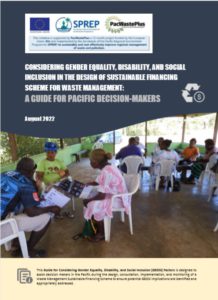
Booklet
GEDSI in Design of Sustainable Financing Scheme for Waste Management
This Guide for Considering Gender Equality, Disability, and Social Inclusion (GEDSI) Factors is designed to assist decision-makers in the Pacific during the design, consultation, implementation, and monitoring of a Waste Management Sustainable Financing Scheme to ensure potential GEDSI implications are identified and appropriately addressed.
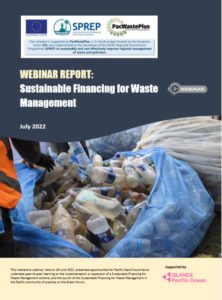
Regional
Webinar Report: Sustainable Financing for Waste Management
Report on an interactive webinar held on 28 June 2022, which presented opportunities for Pacific Island Countries to undertake peer-to-peer learning on the implementation or expansion of a Sustainable Financing for Waste Management scheme, and the launch of the Sustainable Financing for Waste Management in the Pacific community of practice on the Green Forum.
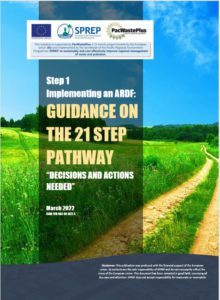
Regional
Step 1: Implementing an ARDF – Guidance on the 21 Step Pathway
Toolkit: ARD Guiding Documents: To assist countries to design their own effective ARFD schemes, an ARFD toolkit has been developed which is a series of 5 publications. Theses include:
1. Guidance on the 21 Step Pathway - Decisions and Actions Needed
2. ARFD Policy and Drafting Instructions,
3. Designing an ARFD Scheme - Key Questions Decision
4. Determining Scheme Partners – Roles and Responsibilities
5. Build it yourself- Guidance to Draft an ARFD Policy
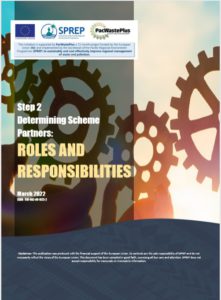
Regional
Step 2: Determining Scheme Partners – Roles and Responsibilities
Toolkit: ARD Guiding Documents: To assist countries to design their own effective ARFD schemes, an ARFD toolkit has been developed which is a series of 5 publications. Theses include:
1. Guidance on the 21 Step Pathway - Decisions and Actions Needed
2. ARFD Policy and Drafting Instructions,
3. Designing an ARFD Scheme - Key Questions Decision
4. Determining Scheme Partners – Roles and Responsibilities
5. Build it yourself- Guidance to Draft an ARFD Policy
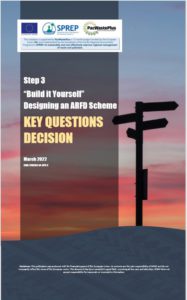
Regional
Step 3: Build it Yourself-Designing an ARFD Scheme – Key Questions and Decisions
Toolkit: ARD Guiding Documents: To assist countries to design their own effective ARFD schemes, an ARFD toolkit has been developed which is a series of 5 publications. Theses include:
1. Guidance on the 21 Step Pathway - Decisions and Actions Needed
2. ARFD Policy and Drafting Instructions,
3. Designing an ARFD Scheme - Key Questions Decision
4. Determining Scheme Partners – Roles and Responsibilities
5. Build it yourself- Guidance to Draft an ARFD Policy
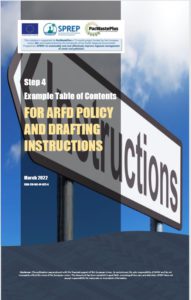
Regional
Step 4: Example Table of Contents for ARFD Policy and Drafting Instructions
Toolkit: ARD Guiding Documents: To assist countries to design their own effective ARFD schemes, an ARFD toolkit has been developed which is a series of 5 publications. Theses include:
1. Guidance on the 21 Step Pathway - Decisions and Actions Needed
2. ARFD Policy and Drafting Instructions,
3. Designing an ARFD Scheme - Key Questions Decision
4. Determining Scheme Partners – Roles and Responsibilities
5. Build it yourself- Guidance to Draft an ARFD Policy
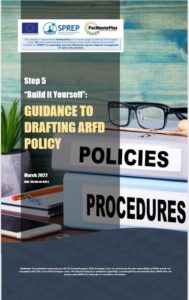
Regional
Step 5: Build it Yourself Guidance to Drafting ARFD Policy
Toolkit: ARD Guiding Documents: To assist countries to design their own effective ARFD schemes, an ARFD toolkit has been developed which is a series of 5 publications. Theses include:
1. Guidance on the 21 Step Pathway - Decisions and Actions Needed
2. ARFD Policy and Drafting Instructions,
3. Designing an ARFD Scheme - Key Questions Decision
4. Determining Scheme Partners – Roles and Responsibilities
5. Build it yourself- Guidance to Draft an ARFD Policy
Newsletter Subscription
Would you like to subscribe to our quarterly programme newsletter-The Connection?
We care about the protection of your data. Read our Privacy Policy.
Newsletter Signup
To sign up to our newsletter, enter the information below and we will add you to our mailing list for all future regional and project updates.
